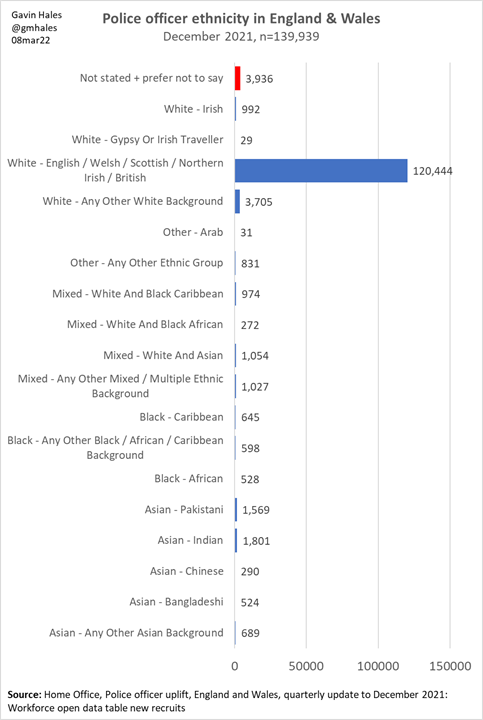
There's a #policetwitter mindset that believes every untruth about or challenge to policing must be 'robustly' confronted. That can translate into expressions of the worst values in policing, whether present today or echoing from the past, esp from behind a cloak of anonymity.
https://twitter.com/DameLynneOwens/status/1567774079473618944
My feeling is that police leaders could do much more to highlight how *counterproductive* this can be.
"You're not helping. In fact you are being unhelpful. Please stop."
"You're not helping. In fact you are being unhelpful. Please stop."
I'd add, however, that police leaders have been conspicuously absent from many public debates about policing, leaving a vacuum.
(I think back to the introduction of spit hoods in London, for eg. It was left to rank and file plus others to explain the issues and necessity.)
(I think back to the introduction of spit hoods in London, for eg. It was left to rank and file plus others to explain the issues and necessity.)
Many of the issues that blow up centre, in their origins, on a lack of public understanding - because things have never been explained.
Others of course reflect a lack of information - eg about incidents - and the speculation that often fills the gap.
Others of course reflect a lack of information - eg about incidents - and the speculation that often fills the gap.
There are also people looking for an argument and fairly set in their views where, frankly, there is little or nothing to be gained from interaction, and a bit of prudence is called for. But time after time the 'defenders' of policing dive in.
I've discussed these kinds of issues before. The point here bears repeating, I think.
https://twitter.com/gmhales/status/973125066937524224?t=byfiq11fXgHIu-GxvqlZ_w&s=19
• • •
Missing some Tweet in this thread? You can try to
force a refresh










